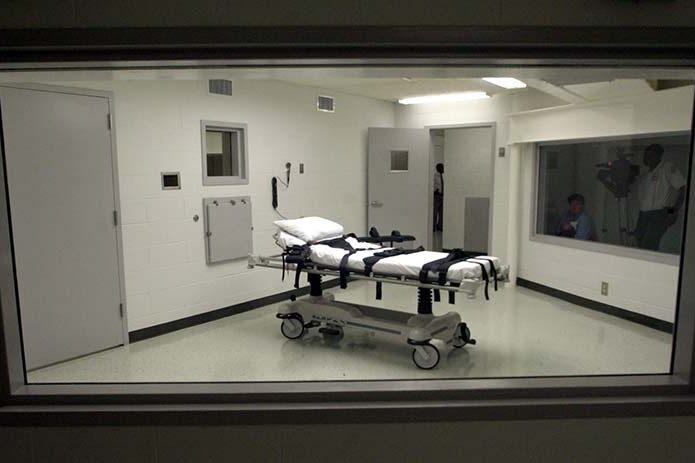Defense lawyers are seeking a stay for the Thursday execution of Kenneth Eugene Smith.
Smith has been on death row since 1996 for the 1988 murder-for-hire killing of a pastor’s wife. A judge sentenced Smith to death despite the jury recommending a life sentence. In 2017, Alabama became the last state in the United States to disallow judges to override a jury’s recommended sentencing in death penalty cases.
“If Mr. Smith’s trial had occurred today, he could not have been eligible for execution,” his attorneys wrote in the request for a stay. “Nor would he be subject to execution anywhere else in the United States, as every state that once permitted the practice of judicial override has abandoned it.”
Smith was initially convicted in 1989, and a jury voted 10-2 to recommend a death sentence, which a judge imposed. His conviction was overturned on appeal in 1992. He was retried and convicted again in 1996.
Smith was one of two men who were each paid $1,000 to kill Elizabeth Sennett on behalf of her husband, Rev. Charles Sennett, who was in debt and wanted to collect on insurance.
Sennett was found dead on March 18, 1988, in the couple’s home on Coon Dog Cemetery Road in Colbert County. The coroner testified that the victim had been stabbed eight times in the chest and once on each side of the neck. According to court records, Charles Sennett took his own life a week later when the murder investigation started to focus on him as a suspect.
Smith has claimed it was the other man who stabbed Sennett and not him. John Forrest Parker, the other man convicted of the murder, was executed in 2010.
In a decision released in October, U.S. District Judge R. Austin Huffaker, Jr. denied Smith’s previous challenge to his execution, where he claimed he was not given sufficient information to select his preferred execution method.
Smith claimed that the Alabama Department of Corrections did not give him sufficient information to be executed via nitrogen hypoxia. He also claimed the state’s lethal injection protocol violated his right to be free from cruel and unusual punishment under the Eighth Amendment, and the purported waiver of his right to elect an execution by nitrogen hypoxia violated his 14th Amendment right to due process.
Nitrogen hypoxia is a proposed execution method in which death would be caused by forcing the inmate to breathe only nitrogen. The process does not have a structured protocol, but it would involve replacing breathed oxygen with nitrogen, causing the individual to drift to sleep and pass away. Some have argued that the method would be more humane, while others have likened it to human experimentation.
While Alabama is currently preparing a protocol for the novel execution method, the state has not given a timeframe for its availability.
To connect with the author of this story, or to comment, email craig.monger@1819news.com.
Don't miss out! Subscribe to our newsletter and get our top stories every weekday morning.










